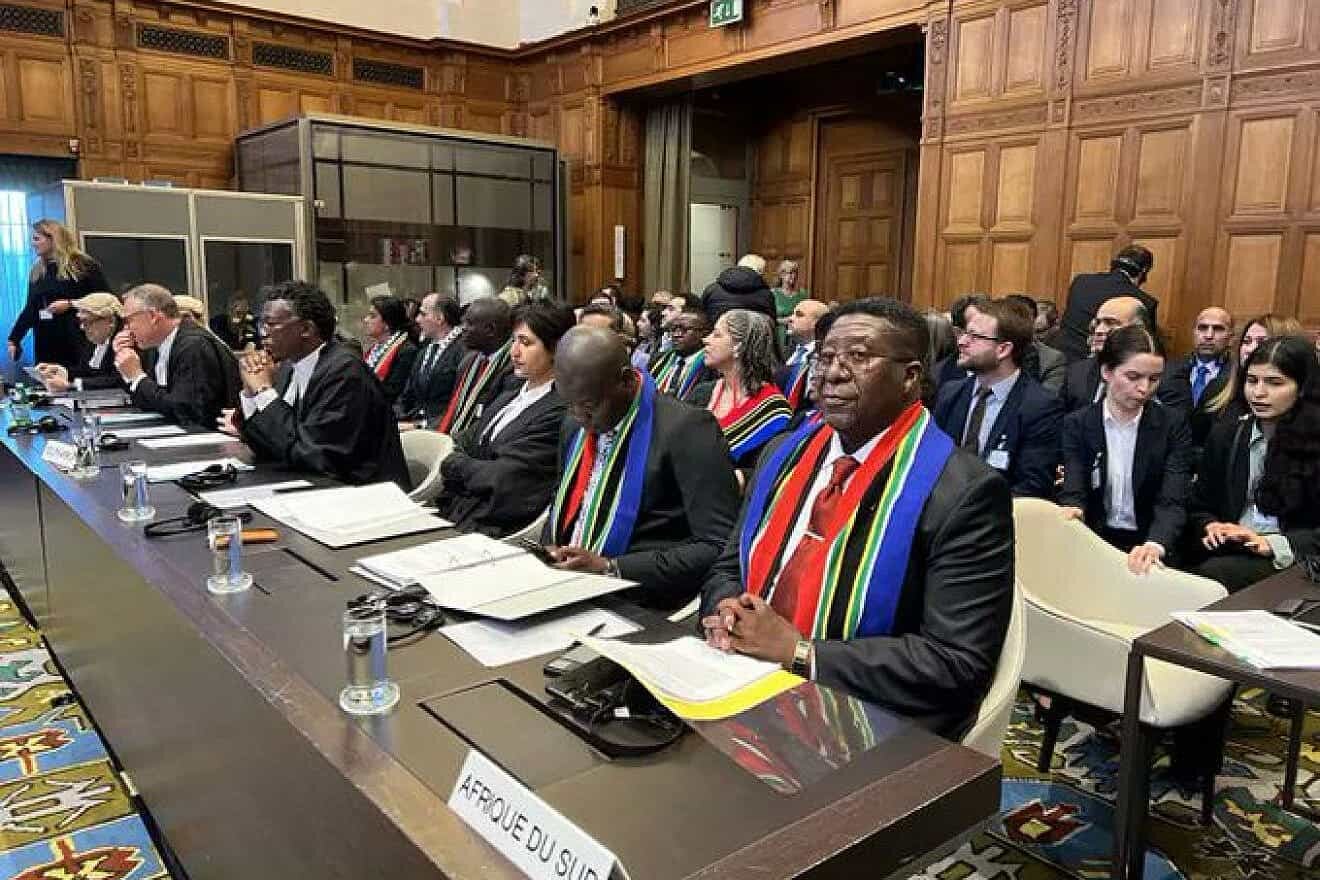Mitigating the damage: We didn’t win at the ICJ
Israelis last week celebrated that the pogromniks only broke the windows, but did not kill anyone. In the twisted world where the International Court of Justice is putting Israel, not Hamas, on trial for genocide, the court did not demand a halt to the Gaza War — which would have effectively ordered us to wait to be tortured and murdered. That is certainly good — but otherwise, the decision was horrible.
The ICJ accepted South Africa’s argument that the court has jurisdiction and that Israel could possibly be proven to be committing genocide.
The ICJ made clear that it considers itself to have authority to review and superintend every aspect of Israel’s war for survival — and demands monthly reports. No other country receives such treatment, and it is designed to make the military constantly look over its soldiers’ shoulders.
The case will go on for years.
The ICJ is not an independent body — it is an organ of the United Nations. Its justices serve a renewable nine-year term, further undermining their independence. The judges are elected by the General Assembly and Security Council, and their positions largely track the foreign policy of their home countries. Thus, while we might get lucky sometimes, over the long run, the policy of the court will reflect the policy of the United Nations.
The General Assembly’s obsessive condemnation of the Jewish state is well known — Israel would never agree to have its fate determined by them. But agreeing to the jurisdiction of the court indirectly does the same thing. In Israel it is thought unacceptable to have judges appointed by democratically elected politicians decide the meaning of ordinary laws — yet we agreed to have judges elected by dictatorial regimes decide the basic question of whether we can exist (and whether we can defend ourselves).
It does not have to be this way: The ICJ does not automatically have jurisdiction over countries — they must specifically agree, typically by agreeing that The Hague can decide a specific dispute or questions under a specific treaty. In this case, Israel signed the Genocide Convention, which provides that “disputes between the … parties” about the treaty can be decided by the ICJ. But that does not mean cases like this, where a totally unrelated state (in this case, South Africa) has brought a purely political complaint in a matter it has no relation to.
The court should not have accepted jurisdiction, and by doing so it effectively claimed for itself power to supervise the conduct of wars around the world, so long as some country claims genocide is involved.
• • •
Israel did not have to agree to the ICJ jurisdiction to be a member of the Genocide Convention, and in retrospect, doing so was a major mistake. Countries are allowed to opt out of ICJ jurisdiction in various treaties, and very commonly do so. Indeed, 16 countries have opted out of the Genocide Convention minus the ICJ jurisdiction — including the world’s largest democracies, the United States and India. Even the world’s biggest superpowers did not trust the ICJ to hear cases involving the use of force in an apolitical way.
The United States also did not agree to the provision of the Genocide Convention that deals with speech, knowing the court can twist legitimate speech into supposed “incitement.” Indeed, those who think the statements of some Knesset members are what got Israel into trouble should consider the comments of President Obama, who spoke of “eradicating a cancer” in the campaign against Islamic State, or Biden, who once said, “We should never take anything off the table when we are in war.”
But Israel did not opt out, leaving itself exposed.
The Genocide Convention was a response to the Holocaust, and it seemed appropriate that the Jewish state would be fully on board. Also, Israeli officials did not expect such a gross abuse of the court’s authority. But they should have. And the Genocide Convention which Israel so respected was turned into a farce, a platform to accuse the Jews of genocide even as they defend themselves from a systematic attempt to wipe them out.
• • •
The hearings in The Hague were a judicial Oct. 7 — a completely unjustified surprise attack that shows us we must fundamentally rethink our defensive posture. In this case, the extraordinary work of the State’s lawyers, and good fortune, prevented disaster.
But we must see that mere sentimentalism, or some lingering faith in international institutions, cannot be allowed to leave us open to such attack again. Even a slight change in the composition of the court or the geopolitical climate would bring a disastrous result — and hostile states like South Africa can roll the dice as many times as they want, with no consequence if they lose and a huge payoff if they win.
Thus Israel must immediately end its acceptance of the ICJ’s jurisdiction concerning the Genocide Convention. This will not end the current proceedings, but it will prevent further such attempts in this or other conflicts.
Moreover, Israel must review all of its treaties for provisions granting ICJ jurisdiction and opt out of those. The United States did just that when Iran used a long-forgotten treaty to bring America to The Hague a few years ago.
Professor of Law Eugene Kontorovich is one of the world’s preeminent experts on universal jurisdiction and maritime piracy, as well as international law and the Israel-Arab conflict.

 44.0°,
Mostly Cloudy
44.0°,
Mostly Cloudy 





